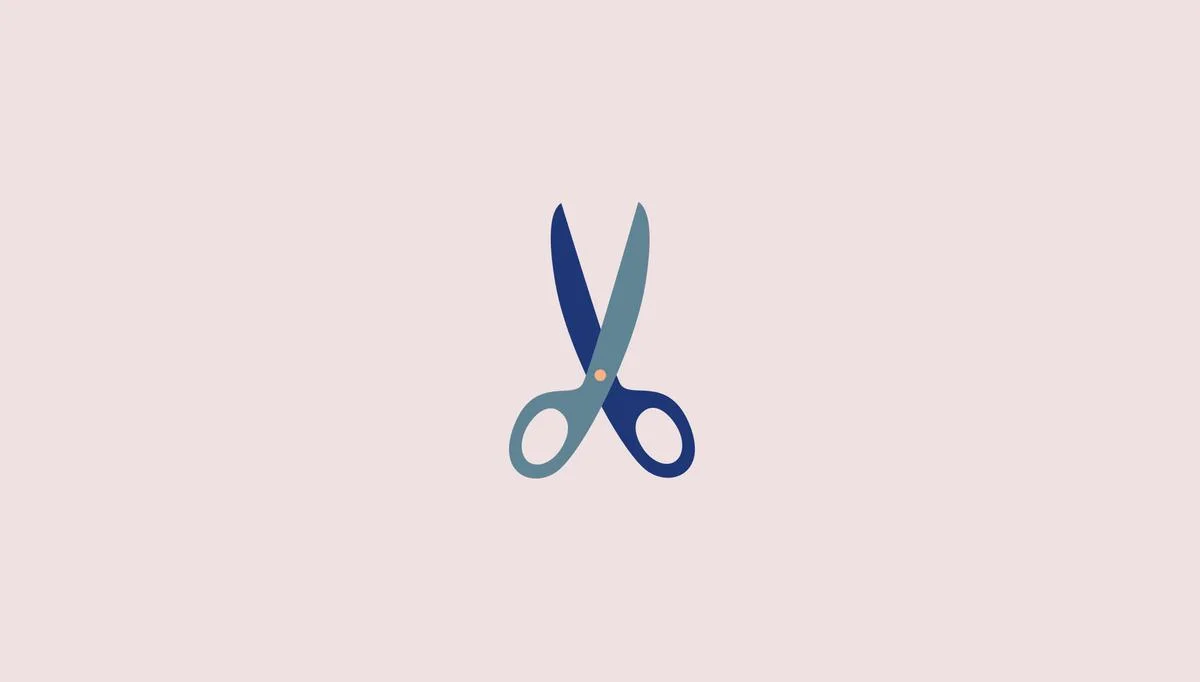Here's what we'll cover
Here's what we'll cover
Here's what we'll cover
Have you ever felt like you were walking through a cloud, unable to really appreciate or enjoy your surroundings or even your favorite activities? It’s normal for people’s moods to change day to day, experiencing both high and lows. But if you experience persistent low moods and/or lack of enjoyment, it could be depression causing your symptoms.
Believe it or not, depression isn’t just one diagnosis. It’s a broad term, and there are quite a few variations. We’re going to look at eight of the most common types of depression.
What is depression?
Depression is a common but serious mental health condition or mood disorder. The symptoms range from mild to severe and may move along a spectrum of severity over time.
In general, depression causes changes in how you think, feel, and react to daily activities. The symptoms of depression must last for at least two weeks for you to be officially diagnosed with a depressive disorder.
Causes of depression
The exact cause of depression has been difficult to find. Research shows it is likely related to disruptions in neurotransmitters—chemicals that relay messages in the body. Risk factors for developing depression include (Chand, 2020):
Genetics and family history
Social changes
History of trauma, abuse, or conflict
Some medications
Age
Your environment
Medical conditions
Stress
Symptoms of depression
The symptoms of depression can vary based on the type. Still, all types typically cause sadness, feelings of emptiness, or irritability, and often interfere with at least one area of life (like work, relationships, or other areas).
Even though depression is a common mental health condition, nearly 60% of people with depression avoid seeking medical help (Chand, 2020).
False beliefs and stigmas often interfere with people getting the help they need. If you or a loved one is living with symptoms of depression, know there are effective, helpful treatment options available no matter the type of depression.
If you or a loved one are facing mental health symptoms or thoughts of self-harm, seek medical attention. You can also call the Substance Abuse and Mental Health Services Administration National Helpline at 1-800-622-4357. This free, confidential line is available 24/7 to help provide support and connect you to services.
There are many different types of depression, and they vary based on:
Symptom duration
Severity of symptoms
Social or environmental circumstances
Let’s look at eight of the most common types of depression.
1. Major depressive disorder
Major depressive disorder (MDD), also called clinical depression or major depression, is the most common type of depression. A national survey showed that in 2017 around 7.1% of people in the U.S. had at least one depressive episode (NIH, 2019).
MDD can be classified as mild, moderate, or severe based on the number and severity of symptoms. Symptoms of MDD include (Chand, 2020):
Trouble sleeping
Loss of appetite
Feeling down or sad
Lack of motivation
Exhaustion
Weight change
Changes in daily activity
Thoughts of worthlessness
Loss of interest
Thoughts of death, self-harm, or suicide
Treatments for major depressive disorder
Major depressive disorder can be treated with psychotherapy, medications, or using a combination thereof.
Antidepressant medications are used for treating depression. These medications work by supporting neurotransmitters that may be causing depressive symptoms. Antidepressants can take 2–4 weeks before symptoms begin to improve.
Psychotherapy or counseling with a trained mental health professional can also help people better manage their symptoms of depression. Types of psychotherapy used to treat depression include (Chand, 2020):
Cognitive-behavioral therapy (CBT)
Interpersonal therapy (IPT)
Problem-solving therapy
These therapies help increase social, emotional, and coping skills to help manage the symptoms of depression.
For people with severe depression where their symptoms didn’t improve with other treatment options, electroconvulsive therapy (ECT) may be considered. ECT is a procedure that triggers a controlled seizure to stimulate the brain. ECT is an effective treatment for depression. There are some risks with this type of therapy, including short-term confusion, disorientation, and memory loss. On rare occasions, ECT could cause mild memory changes that linger for a few months (Salik, 2020).
2. Persistent depressive disorder
Persistent depressive disorder, also called dysthymia, is a form of depression where the symptoms last for longer than two years. Symptoms of dysthymia include (Patel, 2020):
Feelings of unhappiness or sadness
Poor appetite or overeating
Oversleeping or difficulty sleeping
Chronic fatigue
Poor concentration
Feelings of hopelessness
Low self-esteem
Irritable moods
Thoughts of self-harm
Typically the symptom severity in persistent depressive disorder changes, with mild symptoms at times and episodes of moderate to severe symptoms. To be diagnosed with dysthymia, there must be:
Symptoms present for greater than two years with no breaks longer than two months without symptoms
Depressed or irritable mood plus two other symptoms
Treatments for persistent depressive disorder
Treating dysthymia has similarities to MDD; medication, psychotherapy, or a combination of the two may be used (Patel, 2020).
3. Seasonal affective disorder
Seasonal affective disorder (SAD), or seasonal depression, describes mood changes that happen during the same season each year (Munir, 2021). Usually, symptoms develop in the fall or winter months.
The reasons seasonal affective disorder develops are poorly understood. It is more common in areas that have seasons with less than normal sunshine, like during the winter months in the northern regions of the U.S. It’s suggested that low levels of sun exposure lead to changes in hormones and neurotransmitters (Munir, 2021).
Symptoms of seasonal depression include:
Consistent depressive episodes during the same season
Headaches
Lack of concentration
Increased irritability
Lack of interest
Low mood
Confusion
Changes in sleep
Changes in appetite
Thoughts of self-harm
Treatments for seasonal affective disorder
In addition to the typical treatments available for depression, light therapy is another treatment to help manage the symptoms of SAD.
Bright light therapy involves exposure to lamps that mimic sunlight to make up for the loss of natural sunlight. In people with known patterns of SAD, bright light therapy can be effectively used to prevent and manage seasonal depression (Pjrek, 2019).
4. Postpartum depression
Postpartum depression is a type of depression that develops after delivering a baby. Sometimes postpartum depression is called the “baby blues,” but the two are actually slightly different.
The “baby blues” refers to mild mood changes, increased worry, unhappiness, and fatigue in the first two weeks after labor and delivery. If the symptoms are severe or last longer than two weeks, it is more likely postpartum depression.
The symptoms of postpartum depression are the same as in MDD. Sometimes the symptoms become so severe that the affected parent has difficulty caring for their baby, leading to added guilt and isolated feelings.
Treatments for postpartum depression
Postpartum depression is treated with therapy, medication, or both (Informed Health, 2020).
5. Premenstrual dysphoric disorder
Premenstrual dysphoric disorder (PMDD), a severe form of premenstrual syndrome (PMS), is a set of depressive symptoms related to a woman’s menstrual cycle. The symptoms start around the same time of the menstrual cycle and often improve after the period begins.
Symptoms of PMDD include (Mishra, 2020):
Depressed mood and feelings of hopelessness
Increased anxiety and tension
Appetite changes
Fatigue
Trouble concentrating
Loss of interest
Feeling overwhelmed or out of control
Trouble sleeping
Breast tenderness
Headaches
Bloating
To be diagnosed with PMDD, you must have at least five of the symptoms; the symptoms must interfere with daily life; symptoms directly relate to the menstrual cycle; and symptoms happen during at least two periods in a row.
Like other forms of depression, the exact cause of PMDD is unclear, but the following risk factors have been found (Mishra, 2020):
History of traumatic events
Cigarette smoking
Obesity
Treatments for premenstrual dysphoric disorder
Treating PMDD differs from other forms of depression. Antidepressant medications are sometimes still used, but treatment may include:
Exercise
Diet changes to increase complex carb and protein foods
Medications to suppress ovulation
6. Psychotic depression
Psychotic depression is a type of major depressive disorder that includes symptoms of psychosis. In addition to the symptoms of MDD, people with psychotic depression may experience (Dubovsky, 2021):
Hallucinations: seeing, hearing, or feeling things that aren’t present in reality
Delusions: strong beliefs such as thinking they are someone else or that they are being watched
Treatments for psychotic depression
Often people with psychotic depression require hospitalization because of their severe symptoms. Treating this form of depression involves a combination of antidepressants, antipsychotic medication, and potentially ECT treatment.
7. Bipolar disorder
Bipolar disorder is a mental health condition causing severe mood swings. A person’s mood can be very high (also called manic), leading to compulsive behaviors, talking quicker than normal, not needing sleep, and a euphoric mood. The other side of bipolar disorder is a severely depressed mood.
Symptoms of depression in bipolar disorder include (Jain, 2021):
Low mood or increased sadness
Tearful or crying frequently
Weight and appetite changes
Sleep changes
Difficulty focusing
Guilt or feelings of worthlessness
Slowed movements
Loss of interest
Thoughts of self-harm
Treatments for bipolar disorder
Bipolar disorder is a long-term mental illness that requires continually taking medications to help stabilize mood and prevent symptoms from returning. Severe symptoms may be treated with ECT treatment to help get symptoms under control (Jain, 2021).
8. Atypical depression
Atypical depression is a subtype of MDD. It has many similar symptoms of MDD, but there are a few specific symptoms found in atypical depression, including (Singh, 2006):
Strong mood changes in response to positive or negative events
Heavy feeling in arms and legs
Difficulty handling rejection
Increased feelings of sadness in the evenings
Treatments for atypical depression
The treatments for atypical depression include medications, psychotherapy, or a mix of both.
When to seek help
If you are experiencing any symptoms of depression or mood changes, asking for help is important. Many people are concerned about how other people view their mental health and may avoid treatment as a result, but it’s important to get the help you need. Depression and mood illness are common, and asking for help from trained health professionals has many benefits. They can help you build coping skills to handle your life's stress better and help you manage the symptoms. Talk with your healthcare team for support and to better cope with problems affecting your mood.
DISCLAIMER
If you have any medical questions or concerns, please talk to your healthcare provider. The articles on Health Guide are underpinned by peer-reviewed research and information drawn from medical societies and governmental agencies. However, they are not a substitute for professional medical advice, diagnosis, or treatment.
References
Chand SP, Arif H. (2020). Depression. StatPearls . Retrieved from https://www.ncbi.nlm.nih.gov/books/NBK430847/
Dubovsky, S. L., Ghosh, B. M., Serotte, J. C., & Cranwell, V. (2021). Psychotic depression: diagnosis, differential diagnosis, and treatment. Psychotherapy and psychosomatics, 90 (3), 160–177. doi: 10.1159/000511348. Retrieved from https://pubmed.ncbi.nlm.nih.gov/33166960/
Informed Health. (2020). Types of depression. Institute for Quality and Efficiency in Health Care . Retrieved from https://www.ncbi.nlm.nih.gov/books/NBK279288/
Jain A, Mitra P. (2021). Bipolar affective disorder. StatPearls . Retrieved from https://www.ncbi.nlm.nih.gov/books/NBK558998/
Mishra S, Elliott H, Marwaha R. (2020). Premenstrual dysphoric disorder. StatPearls . Retrieved from https://www.ncbi.nlm.nih.gov/books/NBK532307/
Munir S, Abbas M. (2021). Seasonal depressive disorder. StatPearls . Retrieved from https://www.ncbi.nlm.nih.gov/books/NBK568745/
National Institute of Mental Health. (2019). Major depression. Retrieved from https://www.nimh.nih.gov/health/statistics/major-depression
Patel RK, Rose GM. (2020). Persistent depressive disorder. StatPearls . Retrieved from https://www.ncbi.nlm.nih.gov/books/NBK541052/
Pjrek, E., Friedrich, M. E., Cambioli, L., Dold, M., Jäger, F., Komorowski, A., et al. (2020). The Efficacy of light therapy in the treatment of seasonal affective disorder: a meta-analysis of randomized controlled trials. Psychotherapy and psychosomatics, 89 (1), 17–24. doi: 10.1159/000502891. Retrieved from https://pubmed.ncbi.nlm.nih.gov/31574513/
Salik I, Marwaha R. (2020). Electroconvulsive therapy. StatPearls . Retrieved from https://www.ncbi.nlm.nih.gov/books/NBK538266/
Singh, T., & Williams, K. (2006). Atypical depression. Psychiatry (Edgmont (Pa. : Township)), 3 (4), 33–39. Retrieved from https://www.ncbi.nlm.nih.gov/pmc/articles/PMC2990566/












